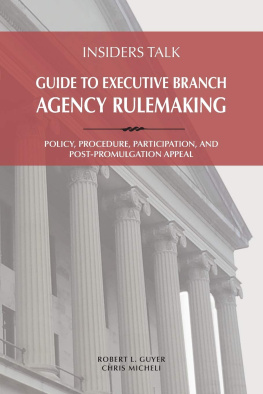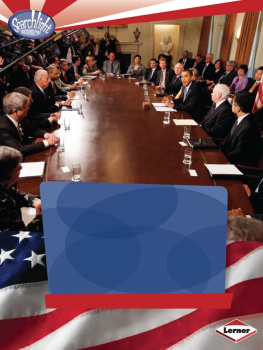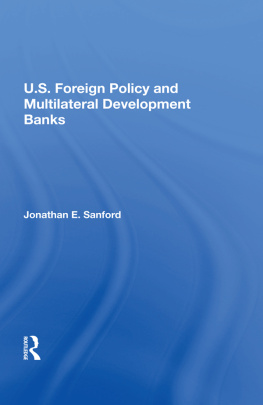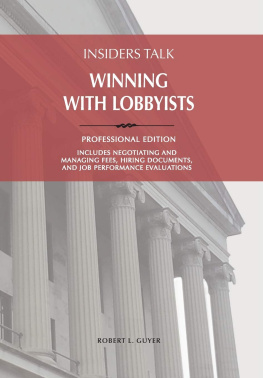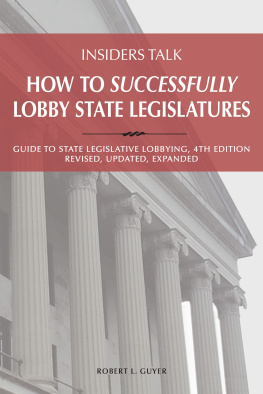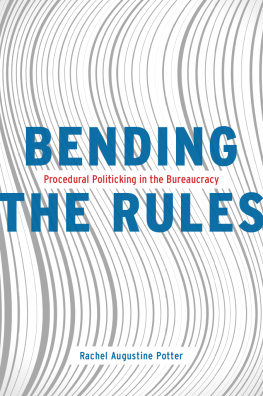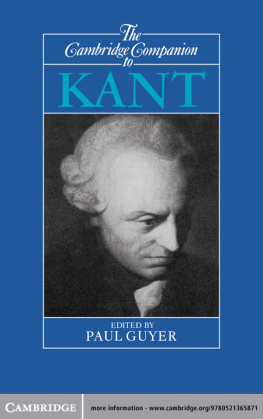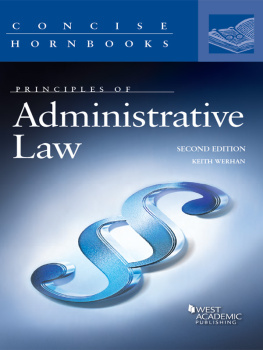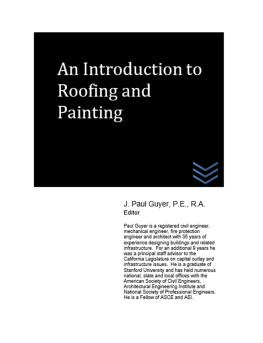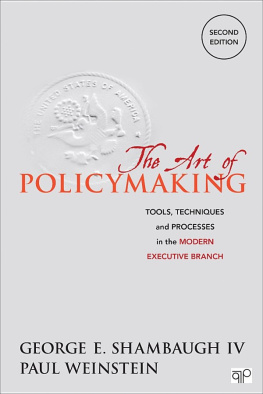Copyright 2019 by Engineering THE LAW, Inc.
All rights reserved. No part of this publication may be reproduced, distributed, or transmitted in any form or by any means, including photocopying, recording, digital scanning, or other electronic or mechanical methods, without the prior written permission of the publisher, except in the case of brief quotations embodied in critical reviews and certain other noncommercial uses permitted by copyright law.
For permission requests, please address
Engineering THE LAW, Inc.
13714 N. W. 21 Lane
Gainesville, Florida 32606, USA
Published 2019 by Engineering THE LAW, Inc.
Printed in the United States of America
21 20 19 1 2 3 4
ISBN 978-0-9677242-6-3 print
ISBN 978-0-9677242-7-0 eBook
Library of Congress Control Number: 2019932757
Introduction
Political jargon can make state politics tough to navigate.
States are quite similar as to both the formal and informal processes of lawmaking. However, in the 50 states different terms describe the same thing. For example, structurally the lower house of the legislature in 41 states is called House of Representatives, in 5 states Assembly, and in 3 House of Delegates. Procedurally, an amendment in the form of a substitute is called hog house (SD), gut and stuff (NV), high jacking (CA), or more commonly strike everything after the enactment clause and insert. Its the same structures, similar procedures, and same essences, just different names. Whats in a name? That which we call a rose by any other word would smell as sweet. So Romeo would, were he not Romeo called, retain that dear perfection which he owes without that title.
Accordingly, this glossary focuses on concepts giving rise to vocabulary rather than variations of vocabulary. Once you understand concepts, the permutations of vocabulary will be easy to learn. Some of the terms herein are standard and found on the Internet. Others are of my own creation.
The National Conference of State Legislatures (NCSL) provides a good starting point for broadly used technical terms. Obtain a state-specific glossary prior to lobbying a particular legislature. Such glossaries are commonly found on the Internet.
Convention: An adjective following the term indicates greater specificity. A term following a hyphen indicates a definition embedded within the main term. For example, See Enactment, Law, legislative, Statutes refers to three primary terms: Enactment, legislative Law, and Statutes. Bills, types of-Emergency bill refers to Emergency bill as a bulleted definition within the main term types of Bills.
Glossary
501(c)(3): Internal Revenue Code classification for charitable organizations. In exchange for tax benefits 501(c)(3) organizations accept caps on lobbying expenditures and a ban on making political campaign contributions.
Access: speaking directly to a lawmaker, often following a campaign contribution . As a lobbying tool the value of access is greatly overstated. See Campaign contribution
Act: an enactment that has become law.
- Private or local act: applies to a person or limited area or subdivision of government.
- Public or general act: applies to the entire state or is of a general nature with local application.
See Enactment , Law, legislative, Statute
Action: legislative disposition of a measure, including steps of parliamentary procedure. See Measure
Acts of the senate, house, assembly: bound annual compilation of all legislation passed by a body (senate, house/assembly) that became law, as well as certain resolves and resolutions. See Session laws
Adjournment: time during which the legislature is not meeting including: termination of a session or meeting for that day (with the hour and day of the next meeting being set prior to adjournment); cessation of the legislative session for the year, biennium , or quadrennium . See Sine die
Administrative law: See Law, agency
Administrative Procedure(s) Act: statute specifying and governing executive agency interactions with the public especially as to promulgation of statute-implementing regulations.
Administrative state: also called the deep state or headless fourth branch of government , career civil service bureaucracy providing executive agency continuity of personnel and purpose, often operating independently of the governor and legislature. See Executive agency staff
Adoption: in general, the passage by a committee, chamber, or legislature of measures, bills, memorials, amendments, resolves, or resolutions. In procedural parlance, the term is often limited to describing the acceptance of amendments or resolutions.
Advance sheets: bound copies of laws and resolutions enacted during a legislative session, prior to incorporation into the codified laws of the state. Individual copies of laws prior to binding are called slip laws.
Advocate: as a noun, in-house lobbyist or contract lobbyist working to achieve a principals legislative goals; as a verb, to speak or act on behalf of a person or position.
Affinity marketing: emotionally based legislative sales technique that makes a lawmaker identify with and feel comfortable with an advocate and by extension the legislative product the advocate is selling.
Agency, administrative, executive, regulatory: See Executive agency
Agenda: daily order of legislative business set by chamber leader. See Daily file
Amend: to change a bill, motion, report, or another amendment by adding, deleting, or changing language. Only the chamber (senate, house, or assembly) can amend a measure. See Committee amendment
Amendment: formal wording upon motion , either spoken or written, changing or proposing to change the language of a bill or measure. Amendments are made on a line-by-line, word-by-word basis and as motions generally are voted on individually. There are many types of amendments, including:
- Amendment in the nature of a substitute: an amendment so extensive that it constitutes a new bill but continues under the same caption and bill number.
- Authors, sponsors, patrons: proposed by the bills main sponsor any time after the bill is introduced to the chamber.
- Committee: See Committee amendment
- Constitutional: proposed change to the constitution. Voters approve or reject the proposition by ballot. A constitutional amendment may be placed on the ballot by the legislature or by citizen initiative.
- Floor: proposed to the chamber during a floor session.
- Friendly: intended to improve the bill in a way the sponsor of the bill will find acceptable.
- Governors: requested by the executive or executive agency; also executive amendment.
- Hostile: introduced by an opponent of the bill and generally unacceptable to the bill sponsor.

